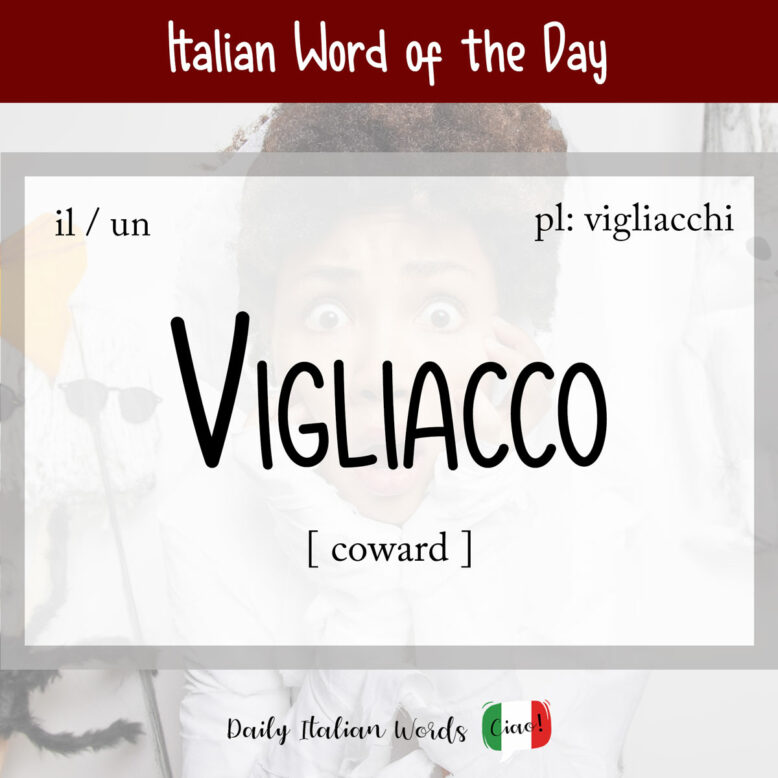One way of saying coward in Italian is vigliacco. For once, we have a word that doesn’t derive directly from Latin but rather the Spanish bellaco meaning wicked or vile.
vigliacco
coward

Here are the definite and indefinite articles used with this word:
- il vigliacco = the coward
- i vigliacchi = the cowards
- un vigliacco = a coward
- dei vigliacchi = some cowards
There is also the feminine form vigliacca and its plural vigliacche. Here are the definite and indefinite articles once again:
- la vigliacca = the coward
- le vigliacche = the cowards
- una vigliacca = a coward
- delle vigliacche = some cowards
It refers not only to those who, for lack of courage, flee from danger or tolerate harassment without reacting, but also those who take advantage of the weak and defenceless to commit acts of injustice, knowing full well that they will avoid punishment.
Ti sei comportato proprio come un vigliacco. Vergognati!
You acted like a real coward. Shame on you!

In this subtle way, it differs from its closest synonym codardo which denotes a person who, out of cowardice, fails to fulfil his or her duties or avoids facing danger.
Some other possible synonyms include vile and pusillanime.
Vigliacco can also function as an adjective, in which case it would translate as cowardly. For example, you can say un soldato vigliacco (a cowardly soldier) or comportamento vigliacco (cowardly behaviour).
Some words that are related to vigliacco include:
- vigliacchetto = the diminutive form of vigliacco, literally ‘little coward’
- vigliaccone = the augmentative form of vigliacco, literally ‘big coward’
- vigliaccaccio = the pejorative form of vigliacco
- vigliaccheria = cowardice
- vigliaccamente = in a cowardly way
Heather Broster is a graduate with honours in linguistics from the University of Western Ontario. She is an aspiring polyglot, proficient in English and Italian, as well as Japanese, Welsh, and French to varying degrees of fluency. Originally from Toronto, Heather has resided in various countries, notably Italy for a period of six years. Her primary focus lies in the fields of language acquisition, education, and bilingual instruction.


